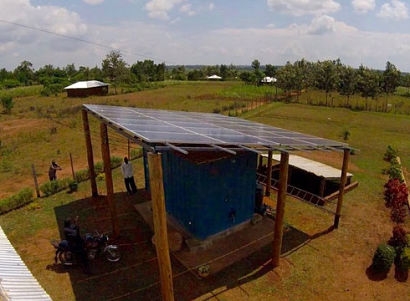
Mobisol GmbH, the pioneer in solar-home systems for rural electrification with headquarters in Berlin, had to recently file for insolvency – technically speaking preliminary insolvency proceedings under self-administration. This means that there is a chance that Mobisol will survive both as a company and as a brand. Nevertheless, according to consultancy, THEnergy, insolvency raises questions about the viability of business models in rural electrification.
Since 2013, Mobisol has supplied more than 600,000 people in remote parts of Africa with solar electricity. Mobisol also seemed to outperform most of its competitors regarding access to capital and was backed by highly regarded financiers including KfW/DEG, Finnfund, Investec Asset Management (Africa Private Equity), FMO, and IFC.
Mobisol’s insolvency could potantially raise concerns for many investors who are already invested in rural electrification companies or are considering investments. This is not only true for rural electrification with solar-home systems but also for access-to-energy solutions with minigrids.
However, Mobisol is different to some of its peers in rural electrification. Companies like Off-Grid Electric, Fenix International, BBOX, Greenlight Planet, Husk Power Systems, Powerhive, Kingo, Simpa Networks, OMC, Winch, GVE, or RVE.SOL do not completely rely on impact investors such as DFIs but also have investments from private financiers with mainly commercial interests such as Engie, Shell, EDF, Total, Caterpillar, Mitsui, Deutsche Asset Management, Deutsche Bank, Helios Investment Partners, FCP Innovación, or EGIS.
Private investors often manage to focus energy-access start-ups more on business aspects such as process efficiency, cost awareness and control, purchase, sales/marketing excellence and controlling. Managing hundreds of thousands of customers is a highly complex task which requires new skills from start-ups.
“We are convinced that private start-ups are much more efficient than most of the local utilities in electrifying rural areas in developing countries,” said Thomas Hillig, Managing Director of THEnergy. “Access-to-energy start-ups typically come with excellent engineering capabilities, extreme commitment throughout the whole organisation, and high ethical standards. However, from a business perspective, they can often need assistance. THEnergy is so successful in this segment, because we combine off-grid experience with business skills. Private investors are more used to working with external consultants and see the particular value of process optimisation, functioning IT-systems and a sophisticated scheme of key performance indicators (KPIs) – just to give some examples from our daily consulting business.”
THEnergy is a boutique consultancy founded in 2013 focusing on microgrids/mini-grids and offgrid renewable energy.
For additional information:

